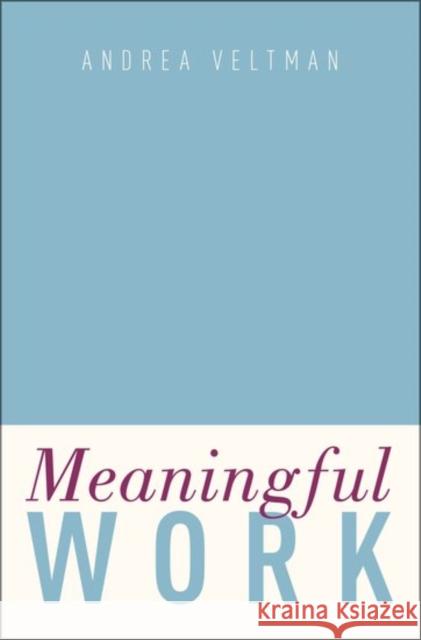Meaningful Work » książka
Meaningful Work
ISBN-13: 9780190618179 / Angielski / Twarda / 2016 / 248 str.
This book examines the importance of work in human well-being, addressing several related philosophical questions about work and arguing on the whole that meaningful work is central in human flourishing. Work impacts flourishing not only in developing and exercising human capabilities but also in instilling and reflecting virtues such as honor, pride, dignity, self-discipline and self-respect. Work also attaches to a sense of purposefulness and personal identity, and meaningful work can promote both personal autonomy and a sense of personal satisfaction that issues from making oneself useful. Further still, work bears a formative influence on character and intelligence and provides a primary avenue for exercising complex skills and garnering esteem and recognition from others.
The author defends a pluralistic account of meaningful work, arguing that work can be meaningful in virtue of developing capabilities, supporting virtues, providing a purpose, or integrating elements of a worker's life. In light of the impact of meaningful work on living well, the author argues that well-ordered societies provide opportunities for meaningful work, that individuals would be well advised to pursue these opportunities, and that the philosophical view of value pluralism, which casts work as having no special significance in an individual's life, is false. The book also addresses oppressive work that undermines human flourishing, examining potential solutions to mitigate the impact of bad work on those who perform it. Finally, a guiding argument of the book is that promoting meaningful work is a matter of ethics, more so than a matter of politics. Prioritizing people over profit, treating workers with respect, respecting the intelligence of working people, and creating opportunities for people to contribute developed skills are basic ethical principles for employing organizations and for communities at large.










